Stock markets in India are presently trading marginally higher. Sectoral indices are trading on a mixed note with stocks in the metal sector and IT sector witnessing maximum buying interest.
The BSE Sensex is trading up 87 points (up 0.3%) and the NSE Nifty is trading up 32 points (up 0.3%). The BSE Mid Cap index is trading up by 0.4%, while the BSE Small Cap index is trading up by 0.3%. The rupee is trading at 65.73 to the US$.
Pharma stocks are witnessing buying interest today. Among the top gainers in the BSE Healthcare index are Merck Ltd(up 20%) and Suven Life Sciences Ltd (up 5.6%).
Speaking of pharma stocks, did you know the BSE Healthcare Index is down 20% over the past three years? During the same period, the BSE Sensex is up 21%.
The BSE Healthcare Index has underperformed the Sensex
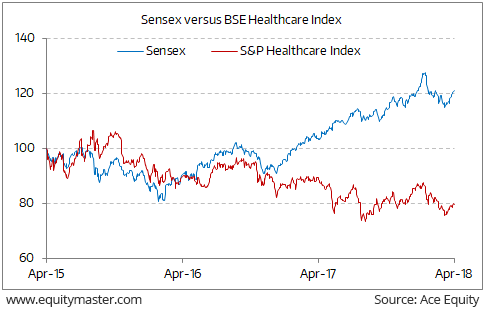
And this was a sector they called ‘evergreen’.
In the news from currency markets, the rupee is witnessing selling pressure today. It depreciated around 15 paise to 65.81 against the dollar in opening trade at the interbank forex market today.
This was seen on the back of increased demand for the dollar from importers and banks amid rising crude oil prices.
Apart from this, foreign capital outflows also weighed on the rupee.
What does the fall in rupee mean for the Indian economy?
A depreciation in rupee means importers buying goods and services at a higher rate that earlier. This doesn’t bode well for a developing economy that relies heavily on imports.
Also, India imports most of its oil requirements. So a fall in rupee leads to a consequent rise in the import bill.
On the corporate side, companies who have taken foreign loans from abroad will be impacted. The repayment obligations in terms of principal and interest will rise, leading to a dent in the cash flows and financials.
Further, companies who import a majority of their raw material requirements will get impacted provided they have not hedged their foreign currency exposure.

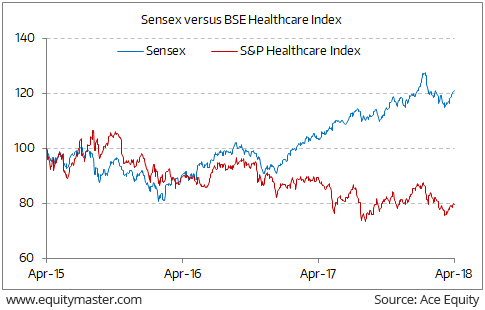



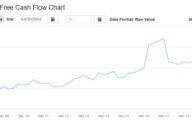







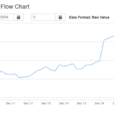

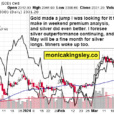
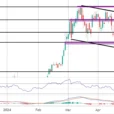
No Comments